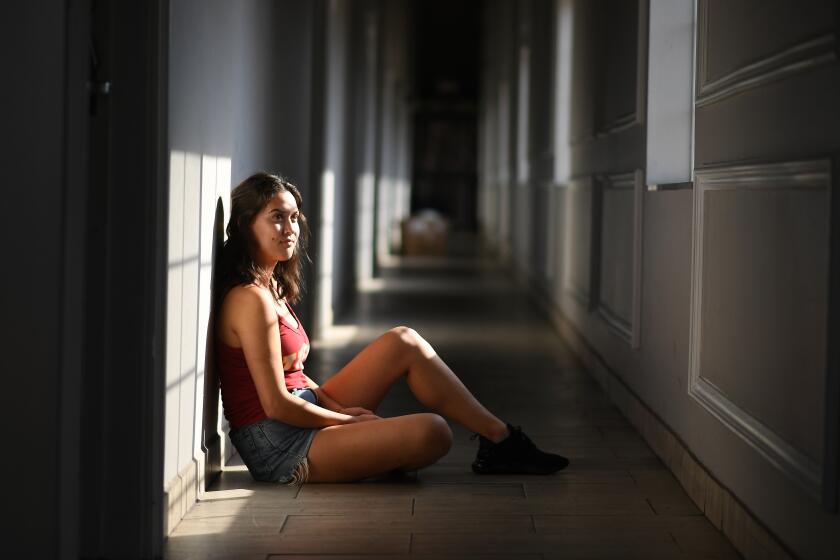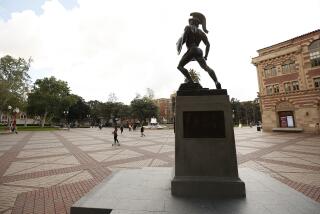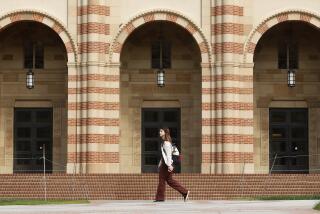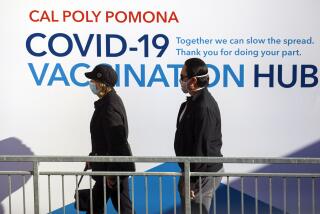USC reports ‘alarming increase’ in COVID-19 cases
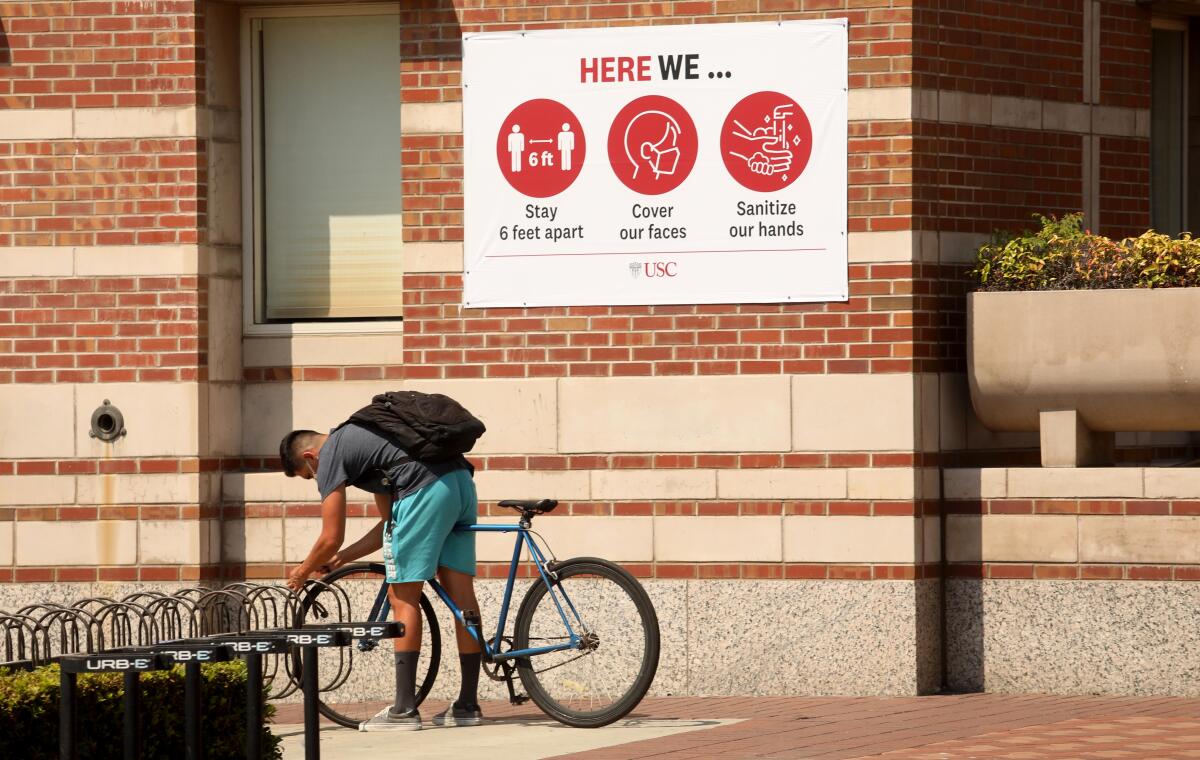
- Share via
Just one week into fall semester, USC is reporting “an alarming increase” in the number of COVID-19 cases in students among the campus community, according to a Student Health notice sent out Monday.
In the past seven days 43 cases have been identified and more than 100 students placed in a 14-day quarantine due to exposures, the memorandum from Dr. Sarah Van Orman, chief health officer for USC Student Health, said.
The university is testing students who are symptomatic and those who have had contact with positive individuals, as well as some asymptomatic students. All of the positive cases were related to students living off campus, the statement said.
“This increase comes despite the continued state and county health guidance that significantly restricts in-person instruction and on-campus activities for universities located in counties that are on the state’s COVID-19 monitoring list, including Los Angeles County,” Van Orman wrote.
USC resumed instruction almost entirely online Aug. 17 and is limiting access to campus. But many students remain in private apartments and houses off campus, where they have reported some parties and gatherings of people from different households, a situation one public heath expert called a “recipe for disaster.”
Parties and college life go hand-in-hand. But the COVID-19 pandemic has turned collegiate revelry into a highly risky proposition. The first week of classes at USC offers insights into the social order.
USC officials have sternly warned students that parties and gatherings are barred, and hosting or attending one could lead to disciplinary action, including probation, suspension or expulsion. And the university has taken substantial precautions in response to the pandemic, including asking students to take a “daily symptom check” through an app and to make reservations before setting foot on campus. Students must also submit to randomly selected temperature screenings once they arrive on campus.
Across the country, universities have scrambled to deal with coronavirus outbreaks as students returned for the fall term.
Last week, the University of North Carolina at Chapel Hill announced it would pivot to online learning after discovering clusters of cases linked to dorms, a fraternity house and other student housing. Notre Dame also ceased in-person instruction for two weeks after 147 students tested positive within a 14-day period. Syracuse University suspended 23 students last week after a large gathering of students on the campus quad “may have done damage enough to shut down campus,” a vice chancellor said in a statement.
This week, many California State University campuses will resume instruction, primarily online, but several universities outside the Los Angeles area expect thousands of students to return to on-campus housing or to private off-campus housing nearby.
Van Orman’s note exhorted USC students on and near campus to follow the six-foot physical distancing guidelines, avoid gathering with people outside their homes, wear face coverings, clean common surfaces frequently, and practice good hand hygiene.
She focused especially on playing games and eating and drinking in close proximity — hallmarks of college gatherings, especially at fraternity houses, which have seen outbreaks.
“Every surface, every interaction where you share close contact or remove your face covering, can pose a risk to yourself and your friends. Even simple board games involving touching shared objects can become a super-spreader event,” she emphasized.
Further down in the note, she added: “Alcohol will impair judgment of distance and contact, so it will be harder to remember who you’ve been in close contact with, if anyone in the gathering later tests positive.”
More to Read
Sign up for Essential California
The most important California stories and recommendations in your inbox every morning.
You may occasionally receive promotional content from the Los Angeles Times.
